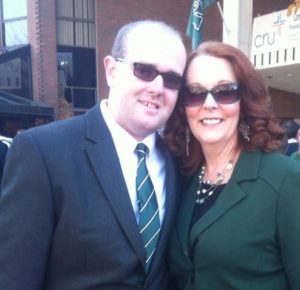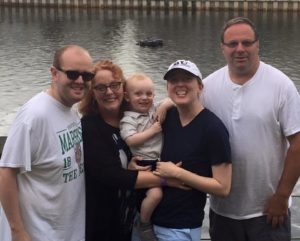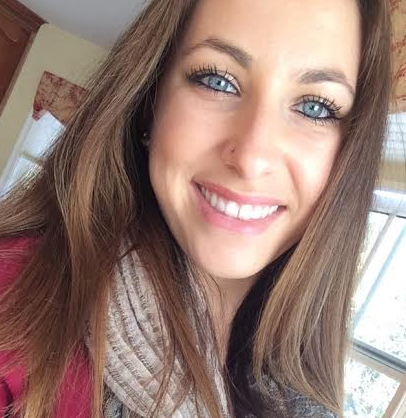Dena Gassner is a powerhouse. Not only does she serve on the national board for The Arc US, she is also a social worker and a Ph.D. candidate at Adelphi University where she is studying Social Welfare. Her research interests include resilience and autistic women’s issues. Her recent speaking events have included Birmingham University (UK), the UN Geneva, NAS Scotland, Cambridge University, IMFAR 2015 and Russia. Dena is a wife, a mother, and a grandmother. At 38 years old, she was diagnosed with autism.

Dena seeks to live a holistically complete life not in spite of her autism, but by embracing it authentically. Read on to learn more about Dena’s work and her insight on community access and public supports.
MHAF: How does your perspective and experiences as a person on the autism spectrum influence the way in which you support others as a social worker?
Dena Gassner: I feel that some non-autistic social workers presume too much when working with autistics. For example, they presume that if a person has a diagnosis, they know what that means. The truth is, many newly diagnosed or previously diagnosed but unsupported autistics have never really been given an opportunity to know what having autism really means. So, starting with a discussion about their diagnosis, their test results, and what’s happening that they most want to address as their priorities is a starting point. Also, somewhat based on my experience as repeated within my community, I tend to start with sleep disturbances as a starting point. Unless the person is keeping a regular schedule and sleeping well, nothing will work. Secondly, I look at medication and anxiety. Again, unless those issues are managed, nothing else will work.
MHAF: What do you see as the biggest barriers to community access or reaching goals for independent living?
DG: When I lived in Nashville, I provided a private practice support model that provided the transition to self-understanding supports I noted above. Then we began supporting autistic adults and the families of transition-aged teens in navigating necessary systems; Social Security, Vocational Rehabilitation, Food Stamps, Post-secondary programs. Again, we presume too much – that less externally manifesting (I do not use high-functioning/low-functioning) persons can take a list of resources and act on them when in fact, they need one to one support to do so. Also, they need a “translator” who can help them when they are not understanding without making them feel inadequate. And they need someone with “insider” knowledge of these systems to help expedite their access to resource and to protect them from unknowingly failing to share enough and/or making mistakes in oversharing. Lastly, systems navigation support means that the navigator has become more than an advocate – that the navigator is a “player” who knows the other “players” in the systems they engage. Where does the buck stop? Wherever the buck stops should be a contact that the navigator knows well, on a first name basis. It’s unreasonable for us to continue expecting families and autistic individuals to develop such skills and contacts. Lastly, it’s the system navigator’s primary duty to insure that they are seeking what the autistic individual wants – not what the navigator or the family presumes is best. The primary duty is to facilitate the individual’s desires based on the client fully understanding the options open to them. Thus, the greatest barrier is the continued “hidden curriculum” of obtaining support. And funding.
MHAF: What is the biggest piece of advice that you would like to share with individuals and families trying to navigate the system?
DG: The goal is never to outgrow one’s autism – the goal is to grow into it. Embrace it. Know it intimately. Let it wrap around you and be fully integrated into your identity as the greatest superpower you have. From this self-knowledge and acceptance, you build your foundation for wellness, achievement and growth. Sadly, many school settings and social constructions suggest that you must outgrow accommodations and disclosure, but, for me, maximizing these supports has led to my greatest personal achievement both personally in my family relationships and professionally as I continue toward my ultimate bucket list accomplishment – my Ph.D.
MHAF: Are there any myths or false information about accessing SSI, SSDI, nutritional assistance, or services that you would like to dispel?
DG: Yes! Some highly-respected autistic advocates engage in social service shaming. They make parents feel like they’ve failed their beloved if they utilize these supports. Nothing could be further from the truth! Using SSI as a springboard to independent decision making–for example, learning money management with your own money from SSI and failing with your own money – makes so much more sense! Using SSI during post-secondary training and the transition to adulthood is key. My son uses his SSI to pay for his own housing, utilities and spending money as a college student, thus, reducing his student loan debt for his future. SSDI is a perfect soft landing space for people who may have endured years of misdiagnosis, missed diagnosis and/or medical maltreatment under poor care. It may provide a foundation for regrouping after a failed attempt at school, work, or a relationship. It can allow a person to maintain some level of pride in self-care if they’ve experienced a period of depression or are facing homelessness. Food stamps will never provide a person sufficient supplement to live on, but it can pay for the most costly items, such as meat and staples, so the lesser costly items can go further. There is no shame in using SSI/SSDI/Food Stamps to facilitate more autonomy and growth. I’ve never known anyone who has maliciously used these supports. What is wrong is how complicated, inaccessible, and rigid these systems are.

MHAF: Is there anything about the system of public supports that you would change?
DG: As you can tell, I am kind of partial to the idea of systems navigators throughout the lifespan of autistics. We pass through too many systems for parents or individuals to be able to reach mastery of them. I think parents and individuals should have this intensity of support from day one. On the other hand, a more long-term objective would be for these systems to stop presuming abuse of their systems, for employment to become more accessible, for there to be less rigidity when people attempt to move off of such programs and to stop punishing people for being disabled.
MHAF: Navigating the system of supports as an adult can be very intimidating. What tips do you offer people who are starting the process?
DG: It is one of the most difficult things to expect from someone with a social impairment condition, however, there are people in the community who are good navigators already. Sadly, autistics and their families have to:
- Call, and call, and call again until they find that person. Some Arc US chapters and Autism Society affiliates can help autistic adults navigate. The Protection and Advocacy offices in each state can ofter references to private and public systems support. That said, we still have a long, long way to go to ensure that people are understood, receive needed accommodations and access to the systems.
- Never just hang up with a “no” response. Always say, “I understand you’re unable to help me with this, and I am grateful for you taking my call. Do you have any suggestions as to whom else I might call about this need?”
- Stay on topic. Sometimes we overwhelm possible navigators with many needs at once. Identify your top three needs and stay on topic with those. Try not to tangent. It will save you time, cognitive energy and will get you where you need to be more quickly.
- Appeal. Many systems count on you giving up. Always, always appeal. Find out why you were denied and then appeal.
- Presume nothing. Don’t just say, “I have sensory issues.” Say, “My sensory sensitivity to bright lights makes it impossible for me to stay under fluorescent lighting for more than an hour at a time. If I stay longer than one hour my heart begins to race, my palms become wet, I feel like I am in a cave, and I begin to have pain in my eyes and head. This has made finding work nearly impossible.”
- Keep documentation of your needs. It is the evidence upon which you will be building a case. If you have not been in treatment for a long time, begin again, as evidence of ongoing need. Go prepared.


 AUTHOR
AUTHOR VIDEO | Inside Autism: Facing the Challenges of Air Travel
VIDEO | Inside Autism: Facing the Challenges of Air Travel



Dear Mrs. Gassner,
Do you have a private practice? My daughter Samantha is 27 years old and is high functioning on the spectrum. She is extremely bright. Sam has her BA degree in psychology, which she obtained 4 years ago. Presently, she is stuck and is not functioning-No job, not moving on with education or anything. She spends her days at home. She’s anxious, depressed and feels misunderstood by every mental health professional who she has ever met. I am desperate in obtaining help for my daughter, whom is a great, warm person. I’ve had some suggestions from members of AHA in psychologists and social workers, but after reading your bio, I do believe you are the one who can help her……..PLEASE! I’ve been praying for a miracle for my daughter and I think you are the miracle she and her family need to help her with her life. Thank you and I appreciate you and what you’ve accomplished. I appreciate your help.
Sincerely,
Linda Press- Desperate mom